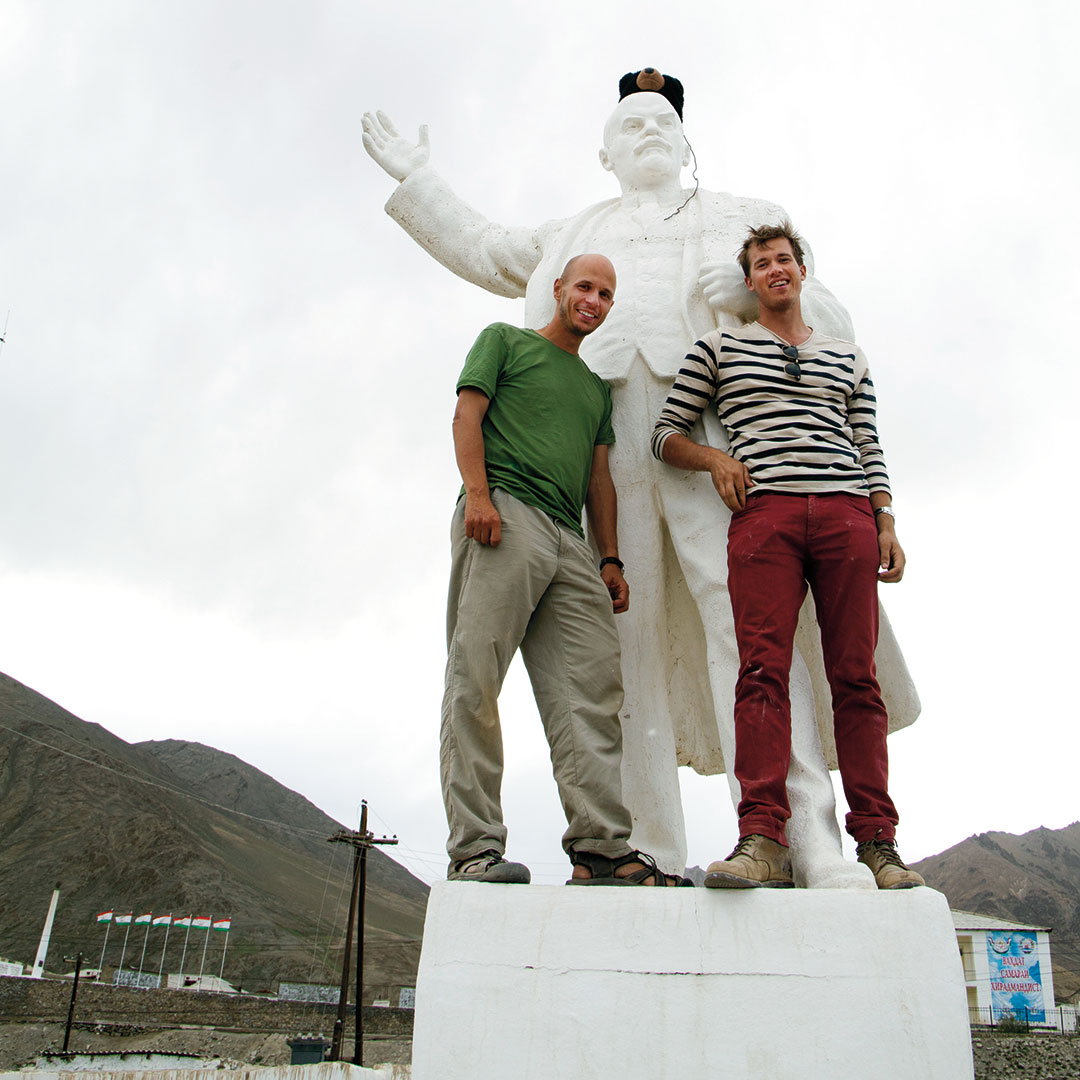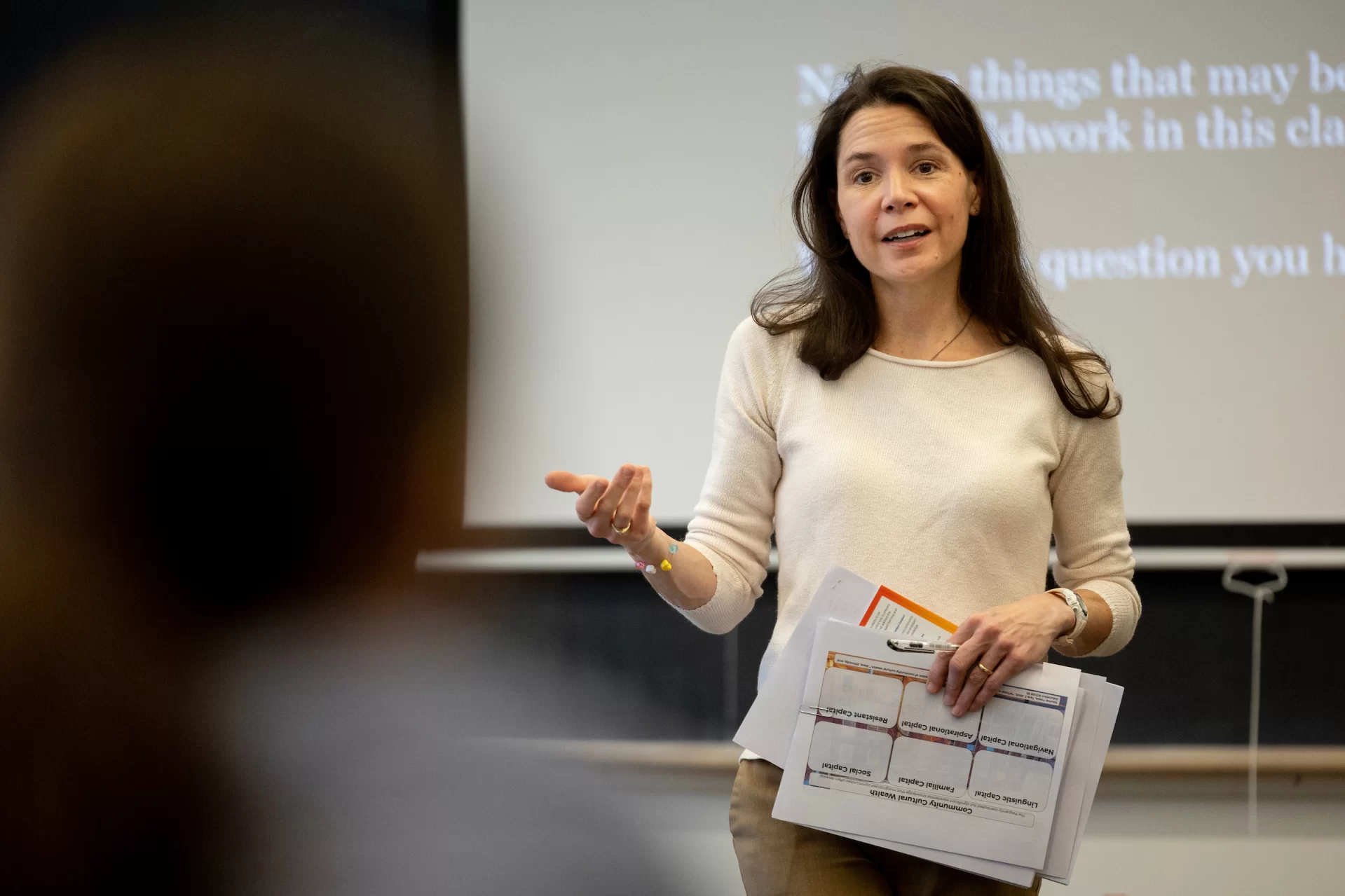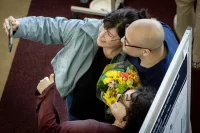
Your Page: Leena Nasser and the silent boy were failing together
A Big Lesson
By Leena Nasser ’12
For a Saudi Arabian woman, coming to the United States to attain a bachelor’s degree in politics means facing challenges from many different directions.
In coming here, I have to defy the stereotype of the submissive “Saudi woman” that is embedded in the culture I grew up in. And here in the U.S., I have also faced assumptions, thrown around as if they are facts, about the difficulties I must have faced living in such an “oppressive” culture.
Many of us place oversimplified labels on people’s identities. Me included.
As a volunteer in the Lewiston public schools, I was assigned to work with a Somali boy in the second grade. He had been figuratively but not literally abandoned by the school because of his poor academic performance.
His nickname was Little Man. He was the quiet kid. He never asked a question and never solved one. When spoken to, he only stared. Whether he understood our words as we uttered them was a mystery. The fact was, he was failing.
I was at first burdened by this assignment. I did not possess the supernatural powers that I believed necessary to help a child that even professional educators failed to help.
The irony hit me. There I was, a Saudi woman in Lewiston, Maine, asked to help a refugee boy from Somalia. Who would have ever thought that I would get here? Either I did possess some superpowers, or I just had great faith in my abilities.
And that’s when I realized that Little Man probably just didn’t have faith in his own abilities.
I did possess some superpowers, or I just had great faith in my abilities.
Thus, I demanded that Little Man meet the standard. I asked him to write his alphabet letters exactly as shown in the laminated alphabet sheet taped on his desk. Little Man resisted change initially. When he leaned back and wrote loosely, I made him erase any letter that didn’t look ideal.
Getting tired of having to redo his letters, he voluntarily sat up straight and tried to get them right once and for all. By the end of the day Little Man’s writing performance was shockingly outstanding!
As the days went by, I saw a drastic change in Little Man’s behavior. He sat up straight when he wrote, sometimes stood up even. He asked to stay in class for recess to work with me on assignments. He became one of the first to complete class tasks.
After writing a letter perfectly one day, Little Man yelled, “Yes!” and quickly pressed his hands on his mouth. It was too late; I had heard him, and knew he was just as happy as I was, seeing that he was capable.
From this experience, I learned that people who seem submissive to their circumstances, and remain silent, are not necessarily silent because they approve. They are silent because they see no way out and are unaware of their capabilities that can take them places. To make a difference, I must empower them by first introducing the tools through which they can change their lives.
Little Man was not little in my eyes anymore. He was never little. In our minds, we were too big to understand him.
A politics major with minors in education and women and gender studies, Leena Nasser ’12 of Dhahran, Saudi Arabia, is studying on the Bates Semester in France program this fall with faculty members Kirk Read (French) and Joseph Hall (history).




